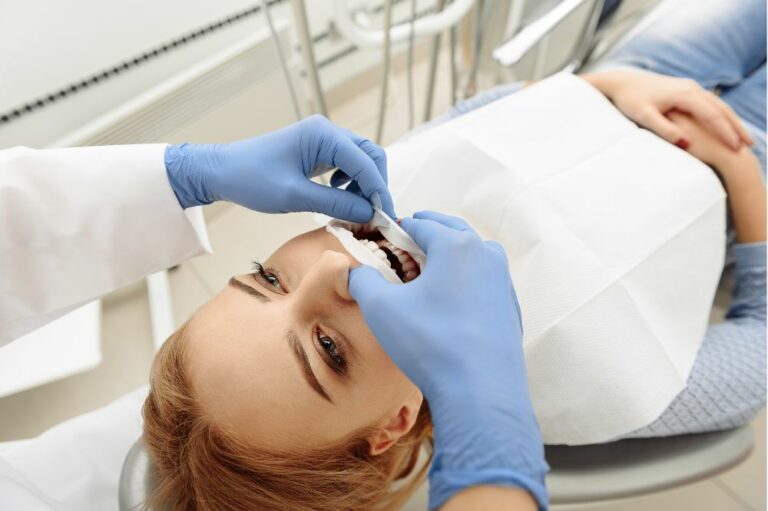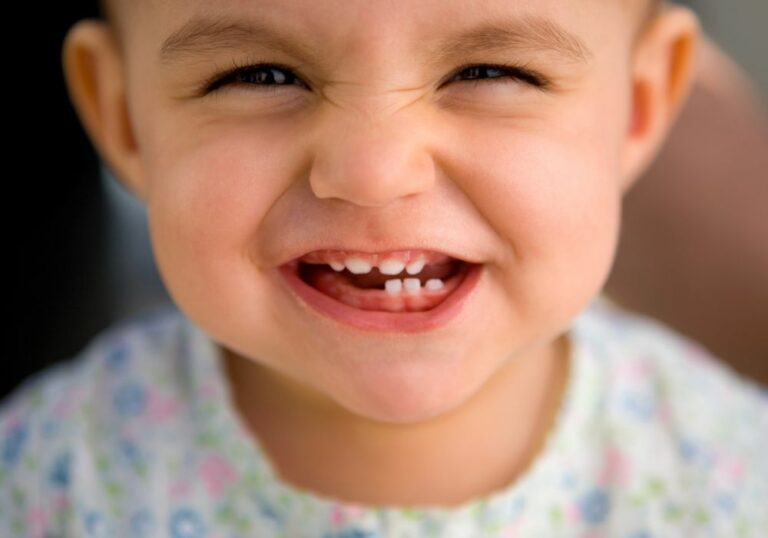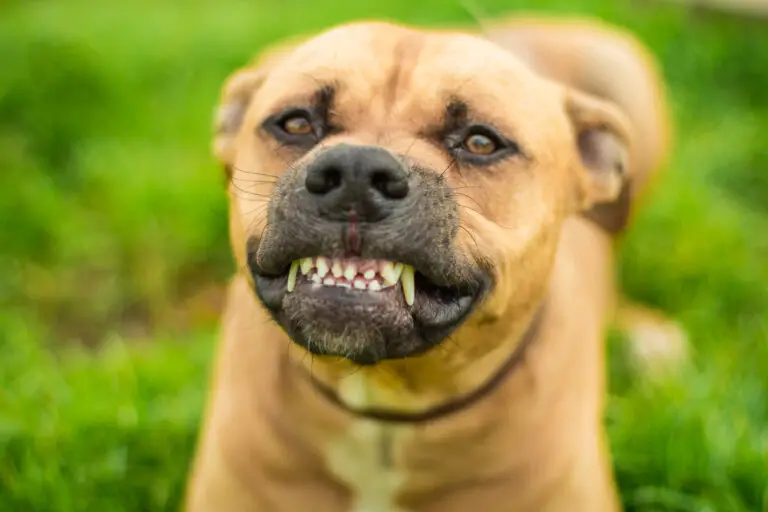Are you a new parent wondering when your baby’s teeth will start coming in? Or maybe you’re a seasoned parent who needs a refresher on the order in which baby teeth typically appear. Either way, understanding the timeline of baby teeth eruption can help you prepare for what’s to come and ensure your child’s dental health is on track.
Most babies will begin teething between 4 and 7 months of age, with the average first tooth erupting around 6 to 10 months. However, it’s important to remember that every child is different, and some may start teething earlier or later than others. In fact, some babies are even born with teeth already in place!
Knowing what to expect can help you identify when your child is experiencing teething discomfort or potential dental issues. Keep reading to learn more about the order in which baby teeth typically appear and what you can do to promote your child’s dental health during this exciting time.
Understanding Baby Teeth
As a new parent, you may be curious about your baby’s teeth and when they will start to come in. Understanding the process of teething and the order in which baby teeth typically emerge can help you prepare for this exciting milestone.
The Process of Teething
Teething is the process of a baby’s teeth breaking through the gums. This can be a painful and uncomfortable experience for babies, and they may experience symptoms such as drooling, fussiness, and trouble sleeping.
Most babies start teething between six and twelve months of age, but some may start as early as three months or as late as their first birthday. The process of teething can last for several years, as babies get all 20 of their primary teeth.
Order of Baby Teeth
While the order in which baby teeth come in can vary, there is a general pattern that most babies follow. The lower central incisors, or the two front teeth on the bottom, usually come in first, followed by the upper central incisors, or the two front teeth on the top.
After that, the lateral incisors, or the teeth next to the front teeth, come in, followed by the first molars, the canines, and the second molars. This process usually takes about two to three years to complete.
Caring for Baby Teeth
It’s important to start caring for your baby’s teeth as soon as they start to emerge. You can clean your baby’s teeth with a soft, damp cloth or a toothbrush designed for babies.
Avoid giving your baby sugary drinks or foods, as this can lead to tooth decay. You should also schedule your baby’s first dental appointment around their first birthday to ensure that their teeth are developing properly.
By understanding the process of teething and the order in which baby teeth typically emerge, you can help your baby through this exciting milestone and ensure that their teeth stay healthy and strong.
When Do Baby Teeth Start to Appear
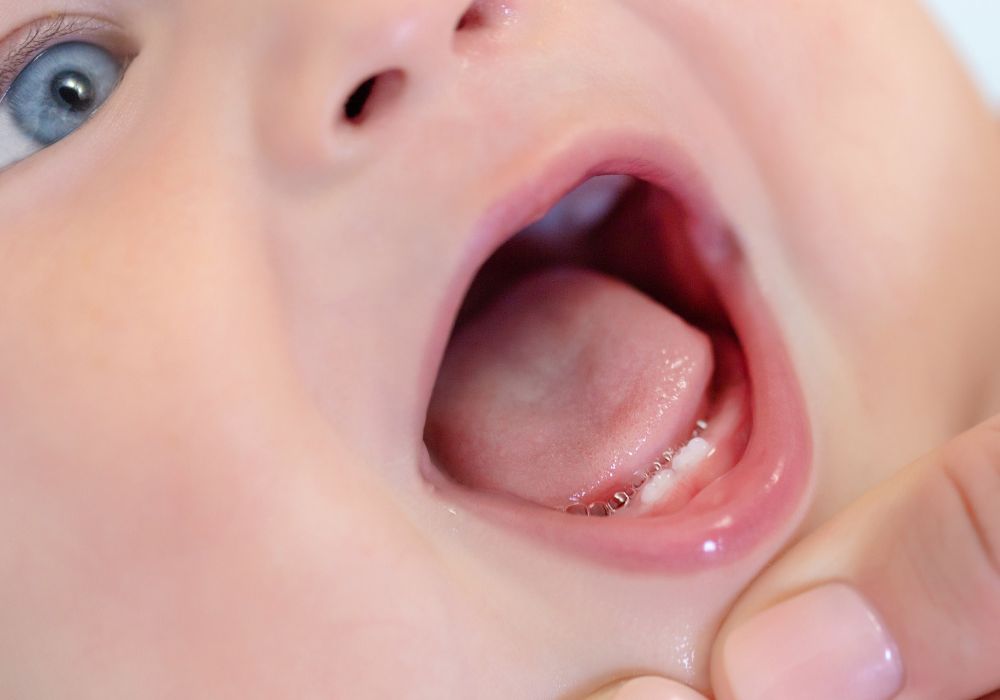
If you are a new parent, you may be wondering when your baby’s first tooth will appear. While there is no set timeline for when teeth will come in, there are some general guidelines to keep in mind.
First Tooth
Most babies will start to develop teeth between 4 and 7 months of age, although some may start as early as 3 months or as late as 12 months. The first tooth to appear is typically one of the two front bottom teeth, also known as the central incisors.
As the tooth begins to emerge from the gums, you may notice some symptoms such as drooling, fussiness, and irritability. Your baby may also want to chew on things to relieve the discomfort.
Following Teeth
After the first tooth appears, you can expect the rest of the baby teeth to come in over the next few years. The order in which the teeth come in can vary, but generally, the top and bottom teeth will come in pairs.
Here is a general timeline of when you can expect each set of teeth to appear:
| Age Range | Teeth |
|---|---|
| 6-10 months | Bottom central incisors |
| 8-12 months | Top central incisors |
| 9-13 months | Top and bottom lateral incisors |
| 16-22 months | First molars |
| 13-19 months | Bottom canines |
| 25-33 months | Top canines |
| 23-31 months | Second molars |
It’s important to remember that every child is different, and some may develop teeth earlier or later than others. If you have concerns about your child’s tooth development, talk to your pediatrician or dentist.
In the meantime, you can help your baby through the teething process by providing teething toys, massaging their gums, and offering cold, soft foods like yogurt or applesauce. With a little patience and care, your baby’s teeth will come in before you know it.
Order of Appearance
When it comes to baby teeth, there is a general order of appearance that most babies follow. Here are the different stages of tooth development and the order in which they typically appear:
Lower Central Incisors
The first teeth to come in are usually the lower central incisors, which are the two front teeth on the bottom. These teeth usually appear between 6 and 10 months of age.
Upper Central and Lateral Incisors
After the lower central incisors, the upper central and lateral incisors usually come in next. These are the two front teeth on the top. The upper central incisors usually come in around 8 to 12 months, while the lateral incisors come in a few months later.
First Molars
The first molars are the larger teeth in the back of the mouth, and they usually appear between 12 and 16 months of age. These teeth are important for chewing and grinding food.
Canines
The canines are the pointed teeth on either side of the incisors, and they usually appear between 16 and 20 months of age. These teeth are important for tearing and cutting food.
Second Molars
The second molars are the last teeth to come in, and they usually appear between 20 and 30 months of age. These teeth are also important for chewing and grinding food.
It’s important to note that while most babies follow this general order of tooth development, there can be some variation. Some babies may get their teeth earlier or later than others, and some may get them in a slightly different order. If you have any concerns about your baby’s tooth development, be sure to talk to your pediatrician or dentist.
Signs of Teething
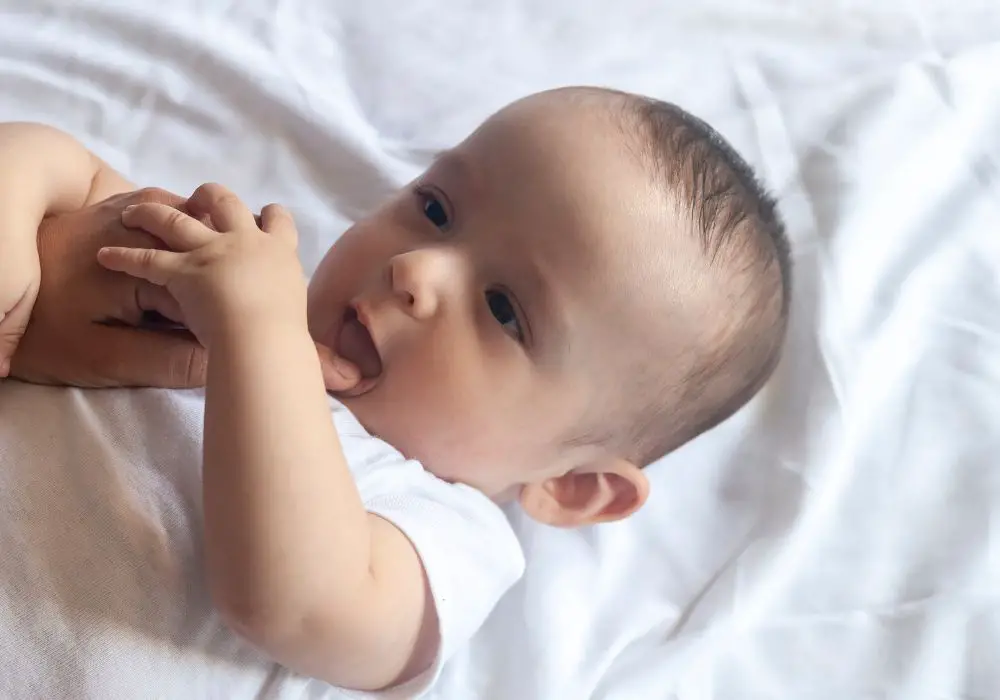
Teething is a natural process that occurs when your baby’s teeth start to emerge from their gums. While it’s an exciting milestone, it can also be a difficult time for both you and your baby. Here are some common signs that your baby is teething:
- Drooling: Teething can cause excessive drooling, which can lead to skin irritation around the mouth and chin. Keep a cloth handy to wipe away the drool and apply a gentle moisturizer to soothe the skin.
- Chewing: Your baby may start to chew on anything they can get their hands on, including toys, fingers, and even furniture. This is because the pressure on their gums can help to relieve the discomfort of teething.
- Irritability: Teething can be uncomfortable and painful, which can make your baby cranky and irritable. Try to comfort your baby with cuddles, soothing music, and gentle massages.
- Sleep disturbances: Teething can disrupt your baby’s sleep patterns, causing them to wake up frequently during the night. If your baby is having trouble sleeping, try giving them a warm bath before bedtime or using a white noise machine to help them relax.
- Loss of appetite: Teething can make it uncomfortable for your baby to eat, which can lead to a loss of appetite. Offer soft, cool foods like yogurt, applesauce, and pureed fruits and vegetables to help soothe their gums.
Remember, every baby is different, and not all babies will experience the same teething symptoms. If you’re concerned about your baby’s teething, talk to your pediatrician for advice and guidance.
Caring for Baby Teeth
Caring for your baby’s teeth is essential for their overall health and well-being. Although baby teeth are temporary, they play a crucial role in your child’s development, including helping them chew food, speak clearly, and maintain space for permanent teeth. Here are some tips to help you care for your baby’s teeth:
Brushing
You should start brushing your baby’s teeth as soon as they appear. Use a soft-bristled toothbrush and a small amount of fluoride toothpaste (about the size of a grain of rice). Brush their teeth twice a day, in the morning and before bed. As your child gets older, you can increase the amount of toothpaste to a pea-sized amount.
Flossing
Once your child has two teeth that touch, you should start flossing their teeth. Use a piece of floss about 18 inches long and wrap it around your fingers. Gently insert the floss between your child’s teeth and move it back and forth in a sawing motion.
Diet
Your child’s diet plays a significant role in their dental health. Avoid giving your child sugary drinks and snacks, such as juice and candy. Instead, offer them water and healthy snacks, such as fruits and vegetables. If your child does have sugary foods or drinks, make sure they brush their teeth afterward.
Dental Visits
It’s essential to take your child to the dentist regularly. Your child should have their first dental visit by their first birthday or when their first tooth appears, whichever comes first. Regular dental checkups can help prevent dental problems and catch any issues early on.
Teething
Teething can be a challenging time for both you and your baby. You can help ease your baby’s discomfort by giving them a cold teething ring or a clean, damp washcloth to chew on. You can also massage their gums with a clean finger.
By following these tips, you can help ensure that your baby’s teeth stay healthy and strong. Remember, good dental habits start early and can last a lifetime.
When Do Baby Teeth Fall Out
As your child grows, their baby teeth will eventually fall out to make way for their permanent teeth. This process typically begins around the age of 6 and continues until the age of 12 or 13. However, the exact timing can vary from child to child.
The first baby teeth to fall out are usually the two bottom front teeth (lower central incisors) and the two top front teeth (upper central incisors). This usually happens between the ages of 6 and 8. The lateral incisors, first molars, canines, and second molars will follow.
It’s important to note that while baby teeth fall out naturally, they can also be lost prematurely due to injury or decay. If your child loses a baby tooth too early, it’s important to talk to your dentist to ensure that their permanent teeth come in correctly.
Once your child’s baby teeth have fallen out, their permanent teeth will begin to grow in. This process can take several years, with some teeth taking longer to come in than others. It’s important to continue to encourage good oral hygiene habits during this time to ensure that their permanent teeth come in healthy and strong.
In summary, baby teeth typically begin to fall out around the age of 6, with the two bottom front teeth and two top front teeth being the first to go. If your child loses a baby tooth prematurely, talk to your dentist to ensure that their permanent teeth come in correctly. Encourage good oral hygiene habits to ensure that their permanent teeth come in healthy and strong.
Importance of Baby Teeth
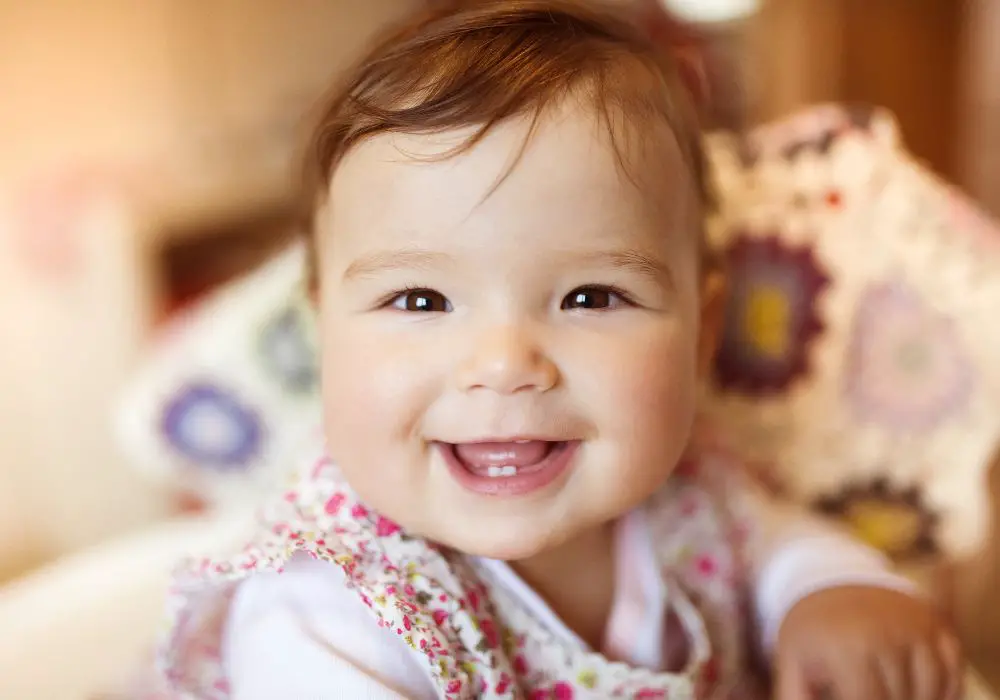
Baby teeth may seem insignificant since they eventually fall out, but they play a crucial role in your child’s overall oral health. Here are some reasons why baby teeth are essential:
Chewing
Baby teeth allow your child to chew food properly, which is crucial for their nutrition and overall health. If your child is unable to chew their food properly, they may not get all the nutrients they need, leading to poor growth and development.
Speech Development
Baby teeth are also essential for speech development. They help your child learn how to pronounce sounds and words correctly. Without baby teeth, your child may struggle with speech development, leading to communication difficulties.
Jaw Development
Baby teeth play a crucial role in jaw development. They help guide the permanent teeth into the correct position, ensuring that your child’s jaw develops correctly. If your child loses their baby teeth too early, their permanent teeth may not come in correctly, leading to orthodontic problems.
Self-Esteem
Baby teeth also play a role in your child’s self-esteem. If your child has missing or damaged baby teeth, they may feel self-conscious about their appearance, leading to low self-esteem.
In summary, baby teeth are essential for your child’s overall health and development. It’s crucial to take care of your child’s baby teeth by practicing good oral hygiene and visiting the dentist regularly.
Frequently Asked Questions
At what age do baby teeth typically start coming in?
Baby teeth, also known as primary teeth, usually start coming in between 6 and 10 months of age. However, some babies may start teething as early as 3 months, while others may not get their first tooth until after their first birthday.
What is the usual order for baby teeth to come in?
Baby teeth usually come in a specific order. The first teeth to appear are usually the two bottom front teeth, followed by the two top front teeth. Next, the baby’s first molars will come in, followed by the canines and then the second molars.
Can baby teeth come in out of order?
Yes, it is possible for baby teeth to come in out of order. While the order of tooth eruption is generally predictable, there can be variations. In some cases, a baby may even get their molars before their front teeth.
What are the most common symptoms of teething in babies?
Teething can cause a variety of symptoms, including fussiness, drooling, chewing on objects, swollen gums, and irritability. Some babies may also experience a low-grade fever or diarrhea.
What are some remedies for teething pain in babies?
There are several ways to help soothe a teething baby’s pain. Massaging the gums with a clean finger or a cool, damp cloth can provide relief. Giving the baby a cold teething ring or a frozen washcloth to chew on can also help. Over-the-counter pain relievers, such as acetaminophen or ibuprofen, can be used in moderation if recommended by a doctor.
Which baby teeth are typically the most painful for babies?
The molars are typically the most painful teeth for babies to cut, as they are larger and take longer to come in. The canines can also be painful, as they have a longer root and can cause more discomfort as they push through the gums.



